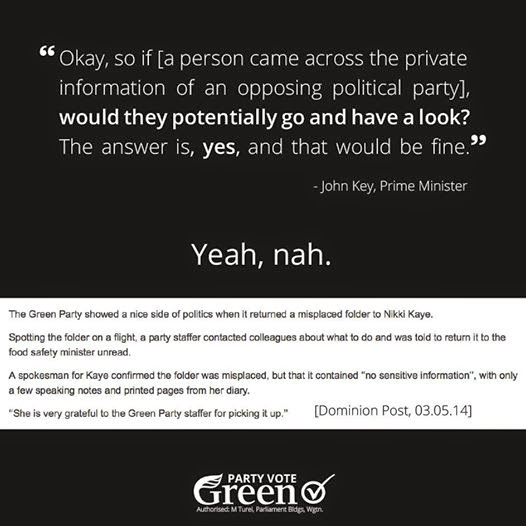It all started with antidepressants about ten years ago. Oh,
I wasn’t the one taking them, but several close friends and family were. And
the funny thing I noticed was that not only did the antidepressants not seem to
be helping, but they seemed to make things worse! The users claimed they helped and said they felt better, but I observed
yawning and tiredness nearing exhaustion in one, self-harming behaviour in
another, and a complete inability to cope with normal, everyday stresses in a
third. And then, within two weeks of a dose being doubled, two consecutive
suicide attempts. Alarm bells went off.
It got worse when one of these people decided to quit
taking the antidepressants. Following advice to decrease slowly, pills were
quartered. The first drop (1/8th of the prescribed dose) resulted in
increased anxiety, unexpected mood changes, irritation and anger over inconsequential
events, and physically, nausea and vomiting. This passed in a couple of weeks.
A month or so later, and another quarter of a pill drop. The same result, only withdrawal
symptoms were more marked. The third ¼ pill drop a month after that brought on intense,
irrational anger coupled with thoughts of suicide. He remarked (and I wrote
this down), “Why should I be so angry she wants to spend some ridiculous amount
of money on that? It’s a stupid thing to want to do, but why should that make
me want to kill myself? This is bizarre!”
And this wasn’t the “suicidally depressed” response you
imagine, where someone is so down and out they see no possible future. This was
a volatile suicidality coupled with anger that appeared seemingly out of
nowhere, materializing in less than a day, sparked by a minor and relatively
impersonal event, and clearly linked to the lowered dose of the antidepressant.
Even in the midst of feeling suicidal, he recognized the absurdity of the feeling
even while acknowledging its intensity. In a few days, the suicidal inclination
had passed, but it was seriously scary while it occurred.
And so began my research and mini-crusade on antidepressants.
When asked if we’d be willing to share our experience with researcher Rachel
Liebert, then a student at the University of Auckland, Simon (not his real
name) and I agreed. I was so impressed with Rachel’s project—which culminated
in her thesis Medicate Me Into Madness—that
I was inspired to return to university and do something similar. (The above link to Rachel's thesis is not direct, but you can apparently access her thesis through a New Zealand library.)
My master’s thesis, CollateralDamage: A Mixed Methods Study to Investigate the Use and Withdrawal ofAntidepressants Within a Naturalistic Population, was published in 2010.
Several people who read it, including my advisor, encouraged me to develop and
publish the first portion of the thesis, on the history of antidepressant use
and development, as a book or part of a book for a more popular (less academic)
audience.
 |
| My new book |
Reframing Mental Illness
is the result of that suggestion. In it, I have gone beyond the antidepressant
story to look at treatment of/for the mentally ill in general, and how that has
developed historically. For many folks, the realization that psychiatric drugs
are developed and marketed not so much to solve people’s problems as they are
to grow a market and increase sales and profits for corporate shareholders is
an eye-opener. (For more on this, see my post Mental Health Drugs are Big Business.)
And it’s not as if anti-depressants and anti-psychotics and ADHD meds like Ritalin--which may or may not work--are harmless placebos either, although side effects may not be a problem for everyone. The astonishing thing is, though, we as a society have bought the story of brain-chemicals-gone-amuck to explain our mental dis-eases and dis-comforts with no scientific evidence whatsoever to back up the theory (although the pharmaceutical companies trot it out regularly).
And it’s not as if anti-depressants and anti-psychotics and ADHD meds like Ritalin--which may or may not work--are harmless placebos either, although side effects may not be a problem for everyone. The astonishing thing is, though, we as a society have bought the story of brain-chemicals-gone-amuck to explain our mental dis-eases and dis-comforts with no scientific evidence whatsoever to back up the theory (although the pharmaceutical companies trot it out regularly).
The second part of the book considers alternative viewpoints
(frames) for understanding mental dis-ease (and that’s dis - ease as in “without
ease”) and suggests a whole range of useful approaches to resolve the many problems we
tend to throw in the mental basket. From practical techniques borrowed from EFT (Emotional Freedom Technique), hypnosis, and NLP
(Neuro-Linguistic Programming) to understanding body energy, quantum energy
fields, priming, emotional intelligence and our three brains (head, heart, and gut),
this is a book designed to get you wondering about why we are so quick to throw
up our hands crying “victim!” and hand our mental health care decisions to our
doctors who, while well-meaning, are mostly likely to pull out the prescription
pad and send us home with a bottle of pills because its cheap and quick.
This is my first book, and I’m pretty pleased with it. I’ve
published through Amazon with CreateSpace and Kindle, which means I didn’t need
to find a publisher, I’ve had full control over design, layout and editing, and
I earn a somewhat higher royalty rate on sales than I might do with a
traditional publisher. CreateSpace and Kindle make it amazingly easy to
publish. The downside is it is also up to me to do my own promotion
for the book. So this post is a bit of a promotion.
If you are interested to
read the full story, with a look at why we use psychiatric drugs (20% of us do),
what they are really, how they are regulated, what problems they cause, and why/how
they are pushed, and then have a chance to examine mental dis – ease from
alternative perspectives that open up a range of options for “treatment” (and I
use that term loosely because it implies “illness”, which may not be a useful
frame)—read the book.
Click here to zap to Reframing Mental Illness at Amazon. I’ve kept the price as
reasonable as I can, US$11.99 for the paperback version, and just $5.99 for the
Kindle (electronic) version. If you don’t have a Kindle, you can download a
Kindle reader for your PC or a free Kindle app for other electronic devices at
Amazon, and of course the book is available worldwide through Amazon.
Lastly, once you’ve read it, if you could post a review at
Amazon, that would be awesome! Your reviews help to “up” my profile on their site. Thank you!
For more information on antidepressant withdrawal, see my posts Antidepressant Withdrawal, How Long Does it Take to Get Off Antidepressants, and Ten Tips for Making Antidepressant Withdrawal Easier.
For more information on antidepressant withdrawal, see my posts Antidepressant Withdrawal, How Long Does it Take to Get Off Antidepressants, and Ten Tips for Making Antidepressant Withdrawal Easier.



